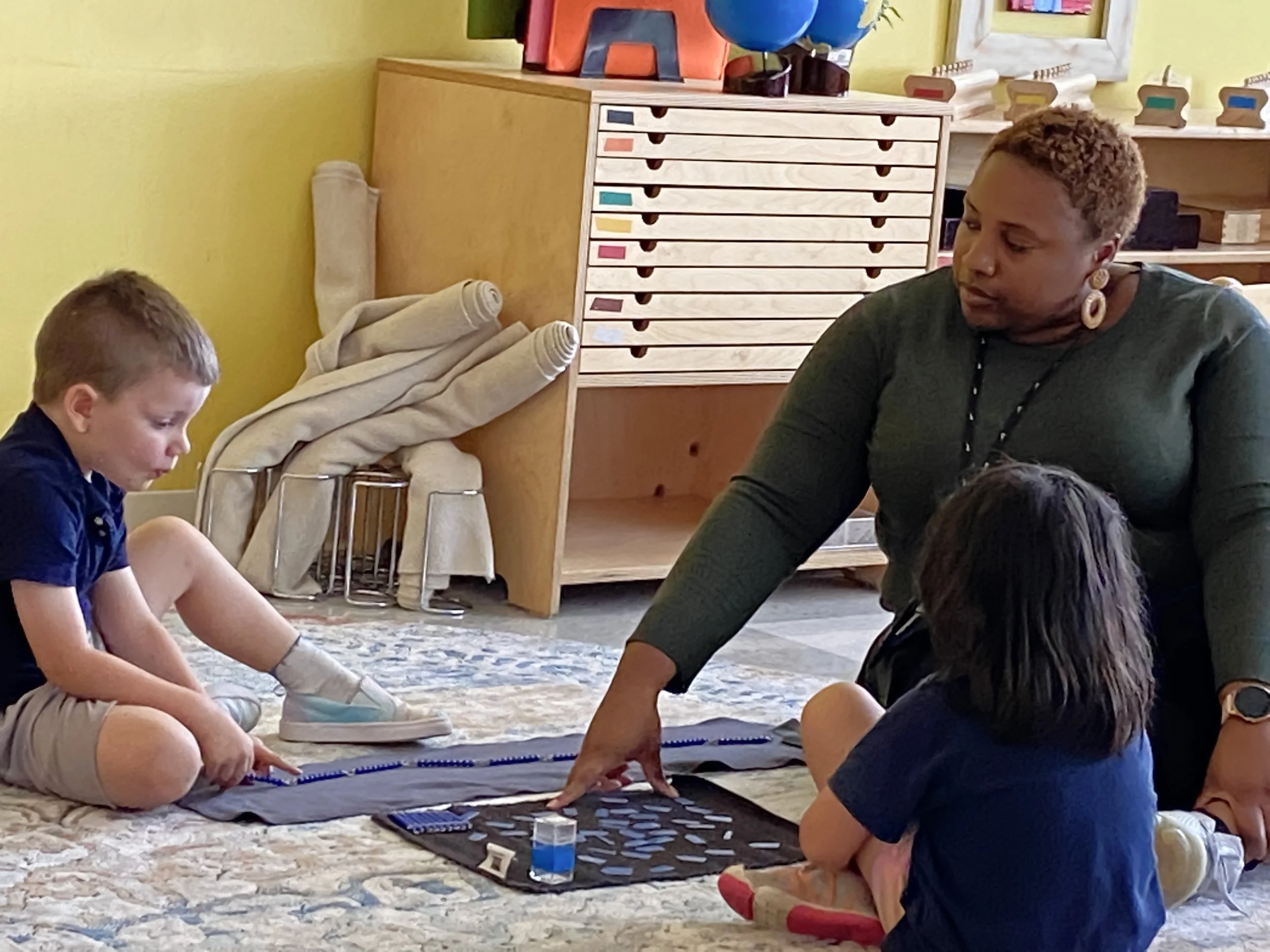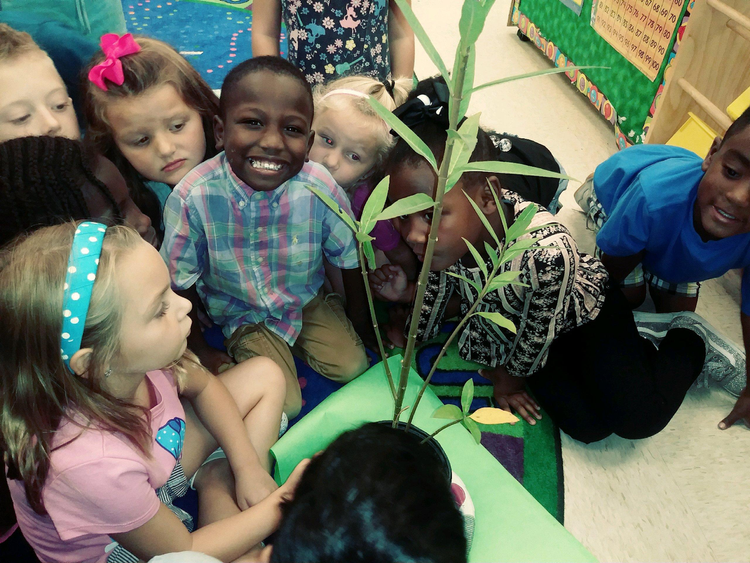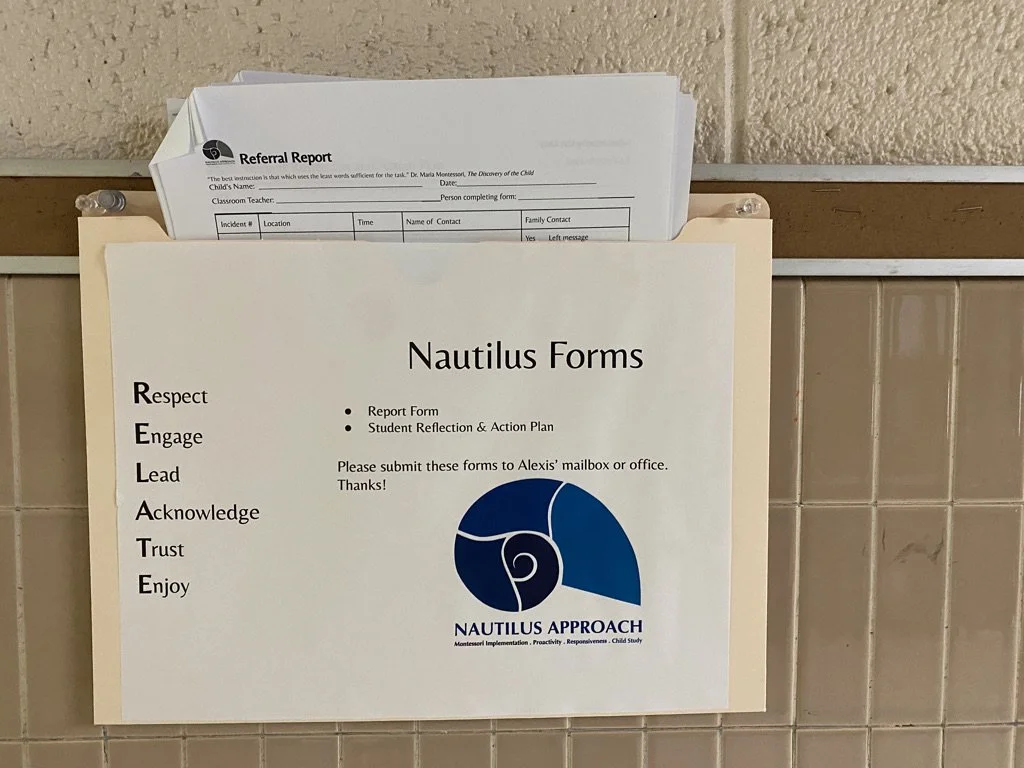Nautilus Approach Lead Course
Monday, August 19, 2024
11:00am - 5:00pm ET
Once you have completed the Nautilus Approach course, and you are ready to learn more, the Nautilus Lead course takes you deeper.
"We must accept adaptation as the basis upon which we can build a concept of education."
- Dr. Maria Montessori
Ready to take the lead?
Once you have completed the Nautilus Approach course, and you are ready to learn more, the Nautilus Lead course takes you deeper. It’s designed for school-based adults who will respond when there is a call for support in the classroom. This course will offer additional tools and resources to support the full implementation of the Nautilus Approach at your school.

"An ordinary teacher cannot be transformed into a Montessori teacher, but must be created anew, having rid herself of pedagogical prejudices.”
“The first step is self-preparation of the imagination, for the Montessori teacher has to visualize a child who is not yet there, materially speaking, and must have faith in the child who will reveal himself through work. The different types of deviated children do not shake the faith of this teacher, who sees a different type of child in the spiritual field, and looks confidently for this self to show when attracted by work that interests. She waits for the children to show signs of concentration." - Dr. Maria Montessori
Moving beyond traditional “discipline/behavior policy.”
This daylong training will prepare you to use the Nautilus Approach in your classrooms and school. The Nautilus Approach replaces the traditional “discipline/behavior policy” that Montessori schools in the public sector often use in line with their school district or for lack of better alternatives. Like the Montessori method, it is a constructivist approach, focuses on the whole-human (rather than other discipline policies or systems which use a behaviorist approach), and aims to reconnect the child to their environment.
Why constructivist thinking?
Education today approaches the work of learning from a range of perspectives, two of which are behaviorist and constructivist. Before exploring the constructivist approach underlying the Montessori method, it’s important to understand the behaviorist approach within which many educators were educated.
Behaviorist Approach
This is the idea that learning happens when there is a proper response to stimulus, such as correct answers (proper response) to math problems on a worksheet (stimulus). The child is merely reactive to the conditions in the environment without being expected to take an active role in discovery. The belief is that facts and information are separate from the learner and are something to be acquired. Behaviorism then is focused on the outward behavior or result, situating learning outside of the learner.
Constructivist Approach
By contrast, constructivism sees learning as creating meaning from experience. This thinking rests on the idea that learners acquire knowledge through active engagement. Students learn by fitting new information together with what they already know. With children as active partners, the method relies on practitioners’ understanding of and ability to implement the constructivist approach, though many themselves have been raised through a behaviorist approach.
This thinking doesn’t simply inform what is happening in classrooms separate from the way the rest of the school is run. As one ecosystem, there also needs to be a synchronized understanding and use of the same framework. When implementing the Montessori method across the whole school, understanding the distinction between behaviorist and constructivist approaches and activating a commitment to using constructivist methods becomes the shared frame.
System of Justness
Nautilus Lead training is part of the System of Justness, a framework for working with children that is based on Montessori principles. This framework aims to ensure that all children are able to fully participate in Montessori classrooms, regardless of their individual needs. The practice centers on understanding the needs of children and providing them with the support they need to be successful.
System of Justness is a school-wide, Constructivist approach that allows Montessori communities to give consistent responses to children in need within a known structure. The System is also also intrinsic to early intervention training.

“Elizabeth is incredibly thoughtful, approachable and invites deep reflection. Her presentation is joyful, practical and timely.”
Like the method itself, we begin the learning process with a direct aim that gives us a sense of what we will know and be able to do once we are done.
Know
Why we need a consistent System of Justice
What is the design?
How will we use it?
Do
De-Escalation Methods
Interventions
Re-Entry Protocol
One day - live, virtual course.
Receive peer support and practical tools ready for immediate implementation.
Monday, August 19, 11:00am-5:00pm ET
Cost: $175


